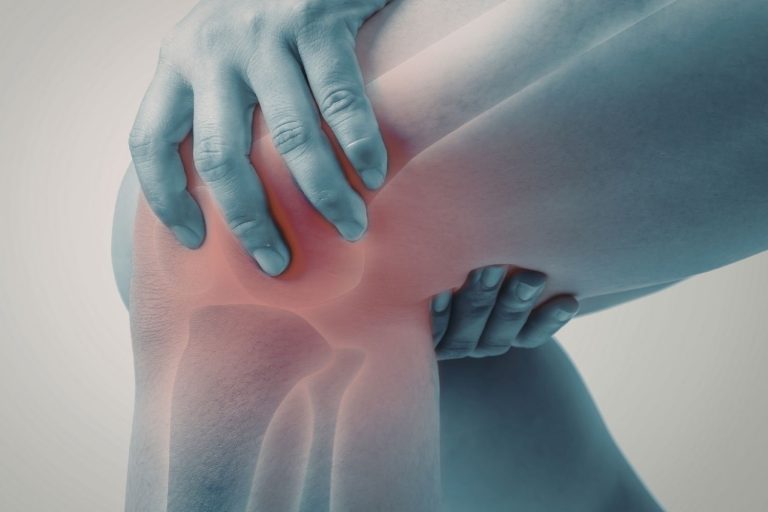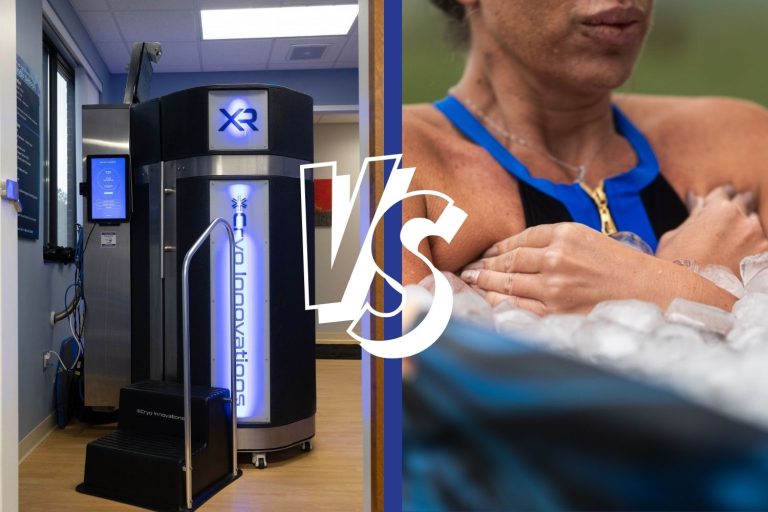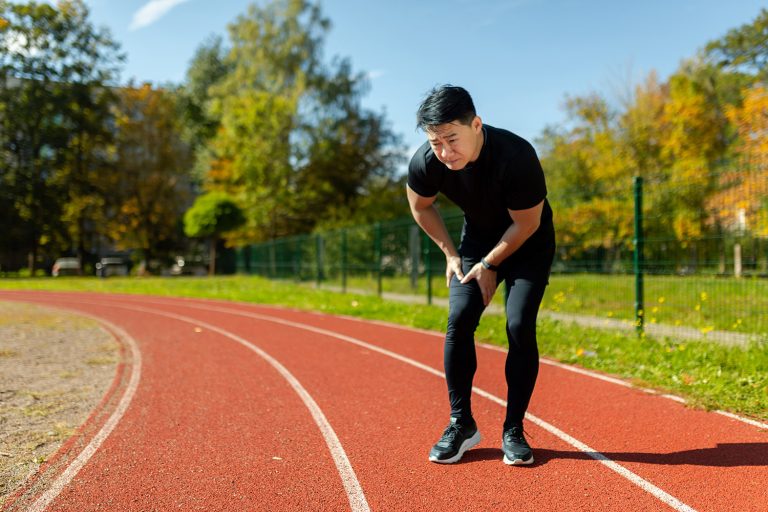

6 Ways Sleep Impacts Sports Performance
Do you get enough sleep? Do you feel too tired to play your sport? Do you want to improve your sports performance? Sleep is important for daily activities including your athletic performance.
Why do we sleep? It’s during sleep that your body can reset and prepare for the next day. It does this by allowing your heart, brain, and muscles to rest, boost your immune system, and solidify any new athletic skills you have learned. For the best recovery, your body needs 7-9 hours of sleep a night.
“Sleep is when your body repairs itself. If we don’t get enough sleep, we don’t perform well” – Felicia Stoler, RD
Sleep impacts your sports performance in these 6 ways:
- Injury risk: A study found that the number of hours of sleep was the strongest predictor for injury rates in high school athletes, even more than the number of hours practiced. If an injury does occur, shorter bouts of sleep will not give the body time to repair, which can cause a slow recovery time keeping athletes on the sideline for longer.
- Diseases and health problems: Reduced sleep increases the levels of many inflammatory chemicals, which can increase risk of infections and illnesses keeping athletes from playing. If players are in close team environments, that infection or illness can spread to teammates affecting their ability to play.
- Changes in judgment and perception: Sleep loss can affect motivation, focus, memory, and learning. Without sleep, the brain has a hard time solidifying memories and absorbing new knowledge. Sleep loss impairs the brain’s decision-making abilities. If a player is fatigued after poor sleep, they’re slower to make decisions, which could be the difference between a player bracing quickly enough for impact or getting an injury.
- Changes in speed, accuracy, and reaction times: In one study, athletes showed faster sprint times after adding additional hours of sleep. In another study, basketball players who added 2 hours of sleep a night were able to increase their speed by 5% and increase their free throw accuracy by 9%. Additional studies show similar improvements with other sports. Sleep can cause fatigue that can reduce reaction times similar to being drunk. A single all-nighter can reduce reaction times by more than 300%, and the sleep recovery can take several days.
- Changes in energy and mood: Studies have shown that even partial sleep deprivation has a significant effect on mood. One study found that people who were limited to 4.5 hours of sleep a night for one week said they felt more stressed, angry, sad, and mentally exhausted. When they returned to a normal sleep pattern, they said they had large improvements in their mood. Having poor mental states, like anxiety and stress, can keep the body awake and alert, which makes it hard to sleep resulting in a circle of chaos.
- Changes in BMI: Studies have shown that people who consistently sleep less than six hours per night are much more likely to have a higher-than-average body mass index (BMI) and that people who sleep eight hours have the lowest BMI. Increased BMI can.
“Just as athletes need more calories than most people when they’re in training, they need more sleep, too” – David Geier, MD
Numerous studies have shown the impacts of sleep on athletic performance, which consistently show that optimal sleep is likely beneficial in reaching peak performance.
Please Share
categories
Recent Posts
categories

6 Ways Sleep Impacts Sports Performance
Do you get enough sleep? Do you feel too tired to play your sport? Do you want to improve your sports performance? Sleep is important for daily activities including your athletic performance.
Why do we sleep? It’s during sleep that your body can reset and prepare for the next day. It does this by allowing your heart, brain, and muscles to rest, boost your immune system, and solidify any new athletic skills you have learned. For the best recovery, your body needs 7-9 hours of sleep a night.
“Sleep is when your body repairs itself. If we don’t get enough sleep, we don’t perform well” – Felicia Stoler, RD
Sleep impacts your sports performance in these 6 ways:
- Injury risk: A study found that the number of hours of sleep was the strongest predictor for injury rates in high school athletes, even more than the number of hours practiced. If an injury does occur, shorter bouts of sleep will not give the body time to repair, which can cause a slow recovery time keeping athletes on the sideline for longer.
- Diseases and health problems: Reduced sleep increases the levels of many inflammatory chemicals, which can increase risk of infections and illnesses keeping athletes from playing. If players are in close team environments, that infection or illness can spread to teammates affecting their ability to play.
- Changes in judgment and perception: Sleep loss can affect motivation, focus, memory, and learning. Without sleep, the brain has a hard time solidifying memories and absorbing new knowledge. Sleep loss impairs the brain’s decision-making abilities. If a player is fatigued after poor sleep, they’re slower to make decisions, which could be the difference between a player bracing quickly enough for impact or getting an injury.
- Changes in speed, accuracy, and reaction times: In one study, athletes showed faster sprint times after adding additional hours of sleep. In another study, basketball players who added 2 hours of sleep a night were able to increase their speed by 5% and increase their free throw accuracy by 9%. Additional studies show similar improvements with other sports. Sleep can cause fatigue that can reduce reaction times similar to being drunk. A single all-nighter can reduce reaction times by more than 300%, and the sleep recovery can take several days.
- Changes in energy and mood: Studies have shown that even partial sleep deprivation has a significant effect on mood. One study found that people who were limited to 4.5 hours of sleep a night for one week said they felt more stressed, angry, sad, and mentally exhausted. When they returned to a normal sleep pattern, they said they had large improvements in their mood. Having poor mental states, like anxiety and stress, can keep the body awake and alert, which makes it hard to sleep resulting in a circle of chaos.
- Changes in BMI: Studies have shown that people who consistently sleep less than six hours per night are much more likely to have a higher-than-average body mass index (BMI) and that people who sleep eight hours have the lowest BMI. Increased BMI can.
“Just as athletes need more calories than most people when they’re in training, they need more sleep, too” – David Geier, MD
Numerous studies have shown the impacts of sleep on athletic performance, which consistently show that optimal sleep is likely beneficial in reaching peak performance.
Please Share







